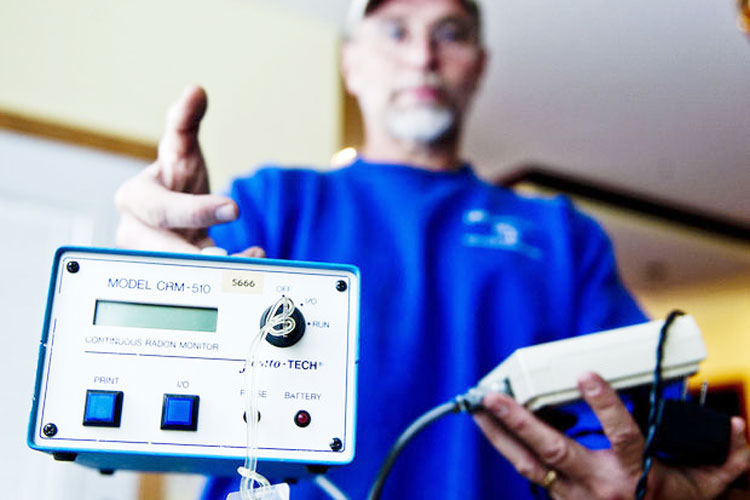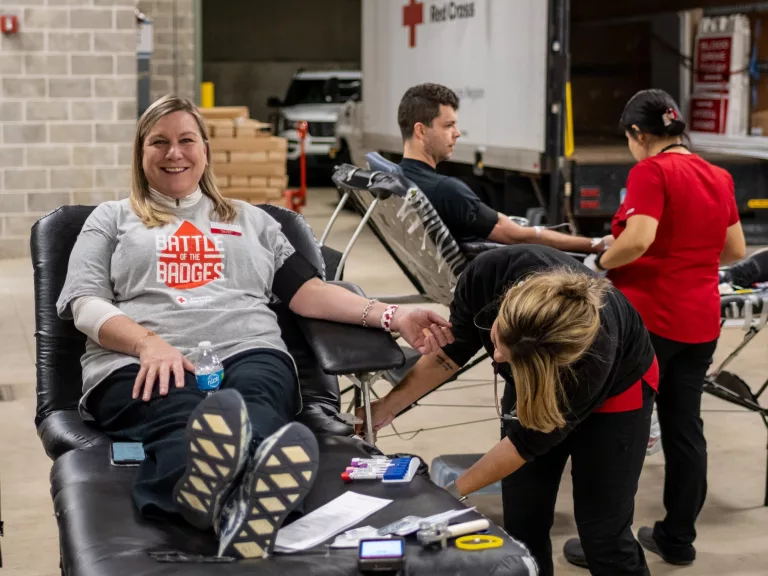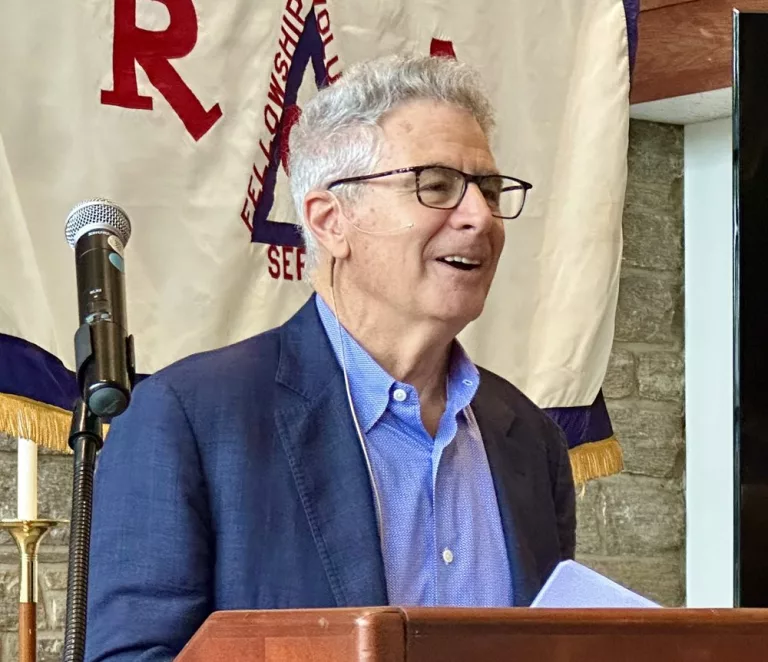
The month of January has been designated as Radon Action Month by the United States Environmental Protection Agency (U.S. EPA). Radon is the second leading cause of lung cancer in the U.S. after smoking, and it is the leading cause of lung cancer among non-smokers. Radon is estimated to be responsible for more than 21,000 deaths from lung cancer in the US each year. About 2,900 of these deaths occur among people who have never smoked. Smokers exposed to radon have a much higher risk for developing lung cancer than smokers who are not exposed.
In response to this important public health issue, the Greenwich Department of Health will offer a reduced fee to test radon in air and water. This is being made possible in part by a state grant.
Radon is present at elevated levels in about one of every five Connecticut homes. Radon is a naturally occurring, invisible, odorless, radioactive gas that is normally harmlessly dispersed in outdoor air but can reach harmful levels when it enters and gets trapped in buildings, particularly in the winter months when homes and other buildings are closed up. Radon comes from the ground and can enter a home through small cracks and other openings in the foundation. Dissolved radon can occur naturally in groundwater and may be aerosolized into the air within a home serviced by well water when running faucets, showers, dishwashers or a washing machine. If radon is already present at elevated levels in the air, the addition of the aerosolized radon from a faucet could cause the radon action level in the home to be exceeded. Distribution water (“town water”) from Aquarion does not contain radon.
The Environmental Protection Agency (EPA) recommends radon abatement measures to be undertaken if radon in air levels exceed 4.0 picocuries per liter (pCi/L). Even if the radon test level is below the action level of 4.0 pCi/L, homeowners should consider testing again sometime in the future as radon levels can fluctuate. Retesting is particularly important if construction work has been done, since it may have disturbed the soil around the home or created cracks in the foundation which could provide an entry point for radon. For radon in well water, the State of Connecticut has set an action level of 5,000 pCi/L and recommends that all wells be tested for radon at least once, and ideally every five years.
To take advantage of the reduced fee radon in air and well water testing program, call the Department of Health Laboratory at 203-622-7843 for details. Radon testing kits for air and well water may be obtained from the Department’s Laboratory located on the ground floor of Town Hall during laboratory hours, Monday through Friday from 8 a.m. to 3 p.m. A reduced fee of $41 will be charged for radon in air testing (compared with a regular fee of $66 per test). Radon in air testing should be begun in the home the same day and the kit returned to the lab four days later, with results being reported by mail. A reduced fee of $48 will be charged for radon testing of well water (compared with a regular fee of $73 per test) and customers will be notified of their results within a week of returning samples to the Lab. Please be aware that households will be limited to one reduced fee air test per household per visit. Customers with elevated radon levels in air and/or well water will be referred to a list of state certified radon mitigation companies.
For more information on radon, radon testing and radon mitigation, call the Greenwich Department of Health Laboratory at 203-622-7843.





